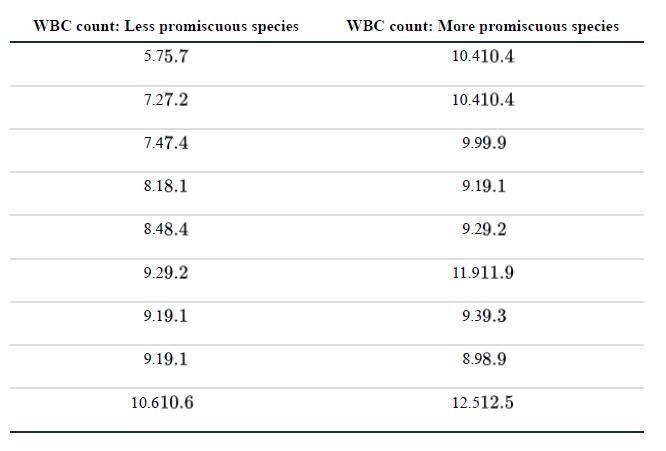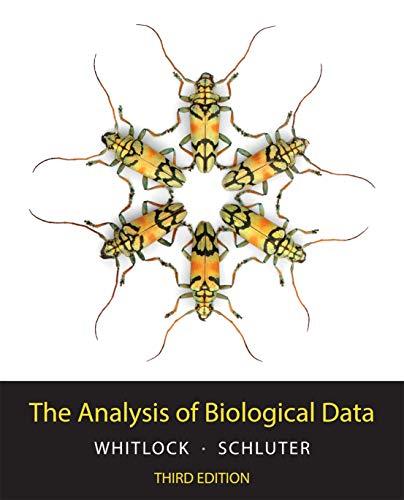Sex, with its many benefits, also brings risk. For example, individuals that are more promiscuous are exposed
Question:
Sex, with its many benefits, also brings risk. For example, individuals that are more promiscuous are exposed to more sexually transmitted diseases. This is true for other primates as well as for our own species.
Different species of primates vary widely in the mean number of sexual partners per individual, and this raises the question, are the immune systems of more promiscuous species different from those of less promiscuous species? Researchers approached this question by comparing pairs of closely related primate species, in which one species of the pair was more promiscuous and the other less promiscuous (Nunn et al. 2000). They measured the mean white blood cell (WBC) count in cells per nanoliter for each species. The results are listed in the following table.

a. What is the mean difference in WBC count between less and more promiscuous species? Which type of species (more promiscuous or less promiscuous) has the higher WBC count on average?
b. What is the 99% confidence interval for this difference?
c. Test the null hypothesis that there is no mean difference in WBC count between more and less promiscuous species.
d. What are your assumptions in (b) and (c)?
Step by Step Answer:

The Analysis Of Biological Data
ISBN: 9781319226237
3rd Edition
Authors: Michael C. Whitlock, Dolph Schluter





